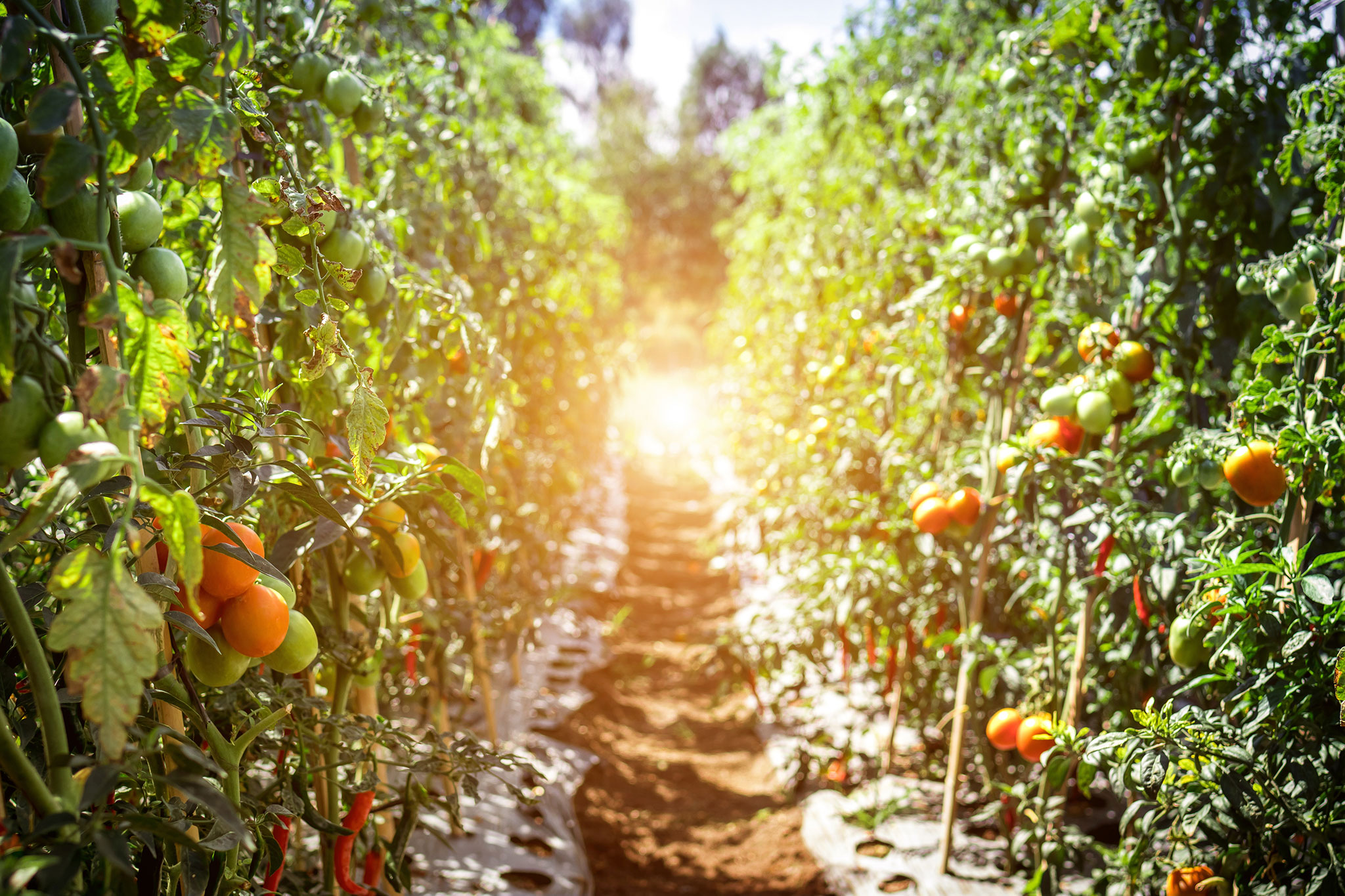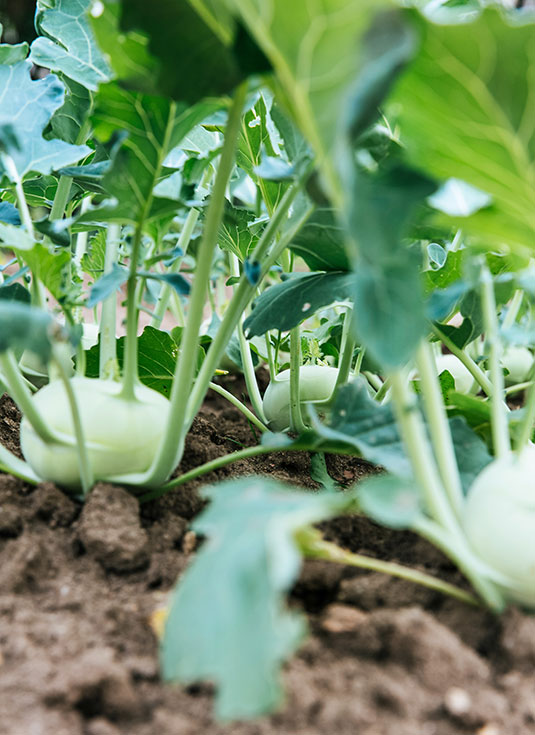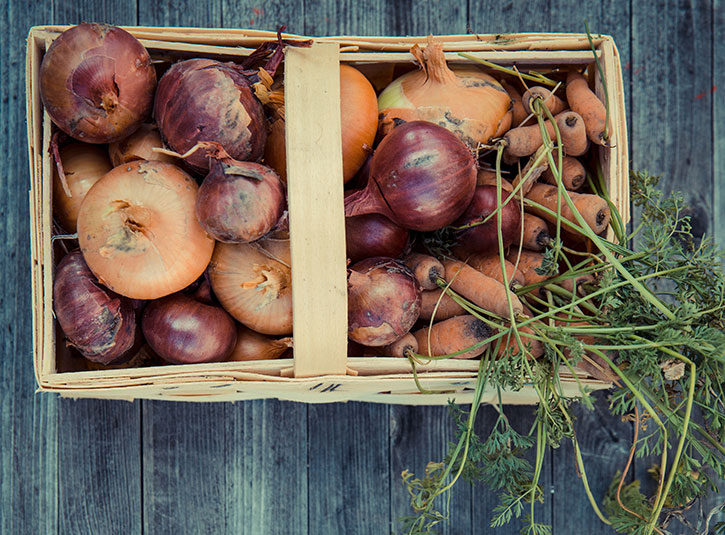
Why are farmers’ markets so popular in North America?
posted on
Did you know that farmers who sell locally create 13 full-time jobs per one million in revenue—versus 3 jobs for those who don’t sell locally? Not only do farmers’ markets stimulate local economies, but they also preserve farmlands that would have been lost to development, increase people’s access to local food and support healthier communities.
It’s no wonder there has been a 260% increase in the number of USDA Farmers Markets from 1996 to 2016.
There are many social, civic, environmental and mercantile reasons to support local farmers’ markets. For example, it really is a community-building (and defining) social event where friends, family and businesses gather and connect on the weekend in many major cities. Plus, seeing the variety of organic and seasonal local produce is inspiring. It helps us make better decisions at the grocery store and encourages us to try new ingredients or branch out with farmer-suggested recipes and cooking tips.
Here are the top reasons behind the continued growth of farmers’ markets in North America.
Farmers’ market produce is (often) better for you
Unfortunately, a lot of grocery store produce is highly processed and grown using sprays, hormones and antibiotics. Sometimes it’s even gassed in transit. In contrast, many farmers who participate in markets use organic and minimal intervention methods to grow their produce. They also often avoid processing and go to great lengths to grow the most nutritious, delicious and colourful produce possible in order to stand out among other farm stands. If nothing else, signage at farmers’ markets tends to celebrate biodynamic and organic farming very clearly (so you know what you’re buying and from where). Organic farming is not only better for the environment, the soil, and the plants themselves, it’s also better for your body.
Farm fresh tastes better
Because farmers don’t have to ship, store and refrigerate produce for long-distance travel, there’s a pretty good chance that the produce was picked at its ripest, freshest and tastiest state. They’ve often been handpicked by the farmers that very same morning. This means that the product not only tastes better, but it’s also at its highest nutritional value. Even a simple salad with farm-fresh heirloom tomatoes, basil and oil is guaranteed to be delicious. Most grocery store fruits and vegetables, on the other hand, were picked before they were fully ripened and are several days old even before they reach the produce aisle.
Support local communities
Eating locally farmed food and supporting farmers markets are good for many reasons, but today I’ll highlight the community and environmental reasons. Increasingly, farmers markets are attracting hundreds (if not thousands) of locals and tourists. They are creating vibrant local food economies and bringing like-minded local people, charities, farmers and businesses together. Likewise, most local farming rotates crops and puts nutrients back into the soil naturally. Industrial monoculture farms are hard on the land, depleting soil, adding chemical fertilizers and using unsustainable farming practices.
Eat what’s in season
Asparagus and greens in the spring, sweet corn and melons in the summer, squash and stone fruit in the fall and root vegetables and hearty greens in the winter. Eating what’s in season locally is good for your health and for the environment. In the winter, for example, your body craves warm and hearty soups and stews—and the seasonal produce reflects that. In the summer, we crave fresh and watery fruits and vegetables, just as nature provides them. Eating a mango in the middle of winter doesn’t have the same nutritional value or freshness, although it might satisfy a momentary craving for vitamin C. It’s so wonderful to understand where your food comes from—and watch the seasons change through local produce.
Support family farms and businesses
Farmers markets are mercantile in their very nature. They give local food producers (farmers, fishers, butchers, cheesemakers, brewers, bakers and so on) a chance to market and sell their products directly to the consumers. It helps make farming more profitable and cost-effective, helping to preserve smaller family farms as the world goes global and industrial. In other words, farmers’ markets give local businesses a fighting chance to survive among large agribusinesses. Plus, local consumers can spend their money on farmers and jobs in their local economies.
Help save the planet
Food in the U.S. travels an average of 1,500 miles to get to your plate. That’s a fairly large footprint when you consider just how much gas, pollution, pesticides, packaging and refrigeration something like a non-organic mango requires to get to you. Locally farmed produce travels much shorter distances—and is usually farmed more sustainably. Likewise, most animal products at the market have been raised more humanely, without hormones or antibiotics (or stress). The animals often eat natural diets and are free to wander more open spaces.
For many of us, it gives us an opportunity to savour and celebrate the biodiversity of our planet. But if nothing else, farmers’ markets offer a glimmer of hope for a healthier, more sustainable future.
Filed Under: Foodee HQ


